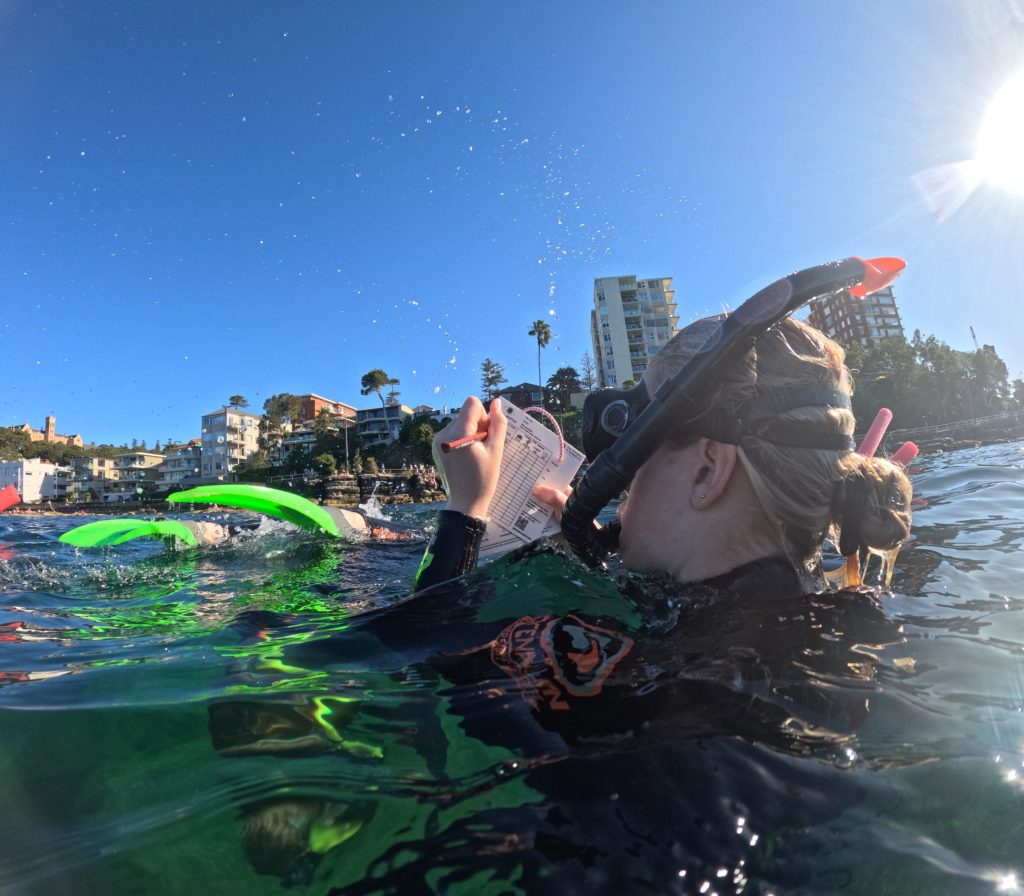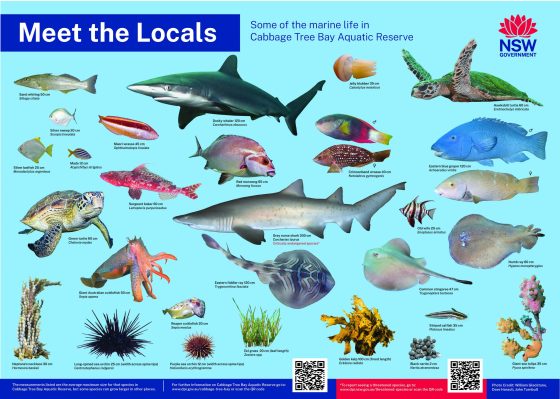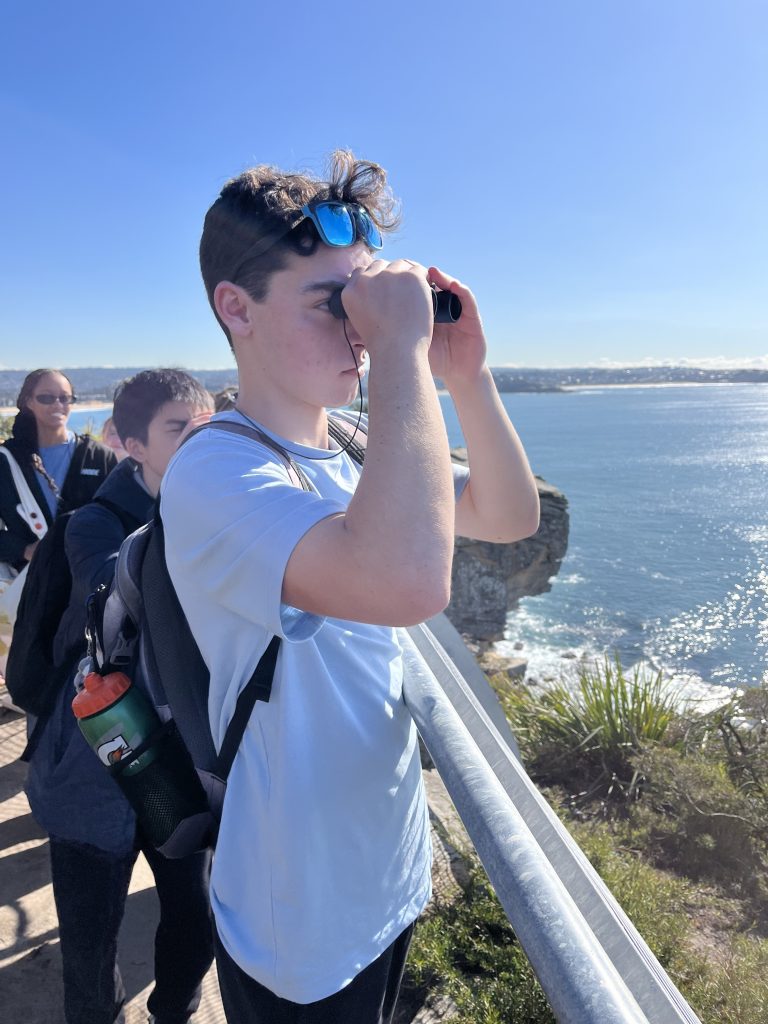Description
Explore Coastal Environments: Syllabus-Aligned Field Studies for Students
Hands-On Learning: Snorkel, Walk, and Discover Coastal Landscapes

Tailored Educational Adventures for Student Success
Ecotreasures’ educational programs have been meticulously designed to support students in achieving their learning outcomes. We offer a diverse range of programs for high school, primary, and university groups, catering to both small groups of just 6 people and larger classes. Recognizing that each school and class has unique requirements and learning levels, we customize each experience to fit your group’s size and budget. Thus, we ensure a perfect match for your educational needs
Teacher Testimonial:
“Hornsby Girls High School had an incredible experience with Ecotreasures. The program was inclusive, and the staff were exceptionally engaging and helpful.” – Jan, Hornsby Girls High School
Educational Standards
Our field studies are designed to meet the fieldwork requirements related to the NSW Education Standards Authority (NESA) Syllabus.
Immersive Field Study Programs
1. Experience the Wonders of Cabbage Tree Bay Aquatic Reserve with Manly’s Premier Advanced Eco Tourism Certified Snorkeling Tour
Guided by enthusiastic local experts, students will embark on an exploration of native marine life and habitats within this protected conservation area. Additionally, all necessary equipment and wetsuits are provided. Furthermore, our snorkel tour can be seamlessly combined with an educational coastal walk and beach clean-up. As a result, program durations are flexible, ranging from 1.5 hours to a full day, to best suit your needs.
High School Syllabus – Aligned Field Studies for Students
Stage 6 Marine Studies – Underwater World Exploration: Discovering Marine Life at Cabbage Tree Bay
Students will be introduced to Marine Studies through an immersive snorkeling experience in the protected waters of Cabbage Tree Bay Aquatic Reserve. Guided by local marine experts, students will explore the bay’s rich biodiversity and vibrant coral communities. They will participate in hands-on activities, including coral health surveys to monitor coral cover and condition, and wildlife identification surveys to record and classify the variety of fish and invertebrates found in the reserve.
Through these activities, students will learn about the classification of marine organisms, investigate species adaptations, and understand the roles of producers, consumers, and decomposers within marine food webs. The excursion provides a unique opportunity to connect classroom learning with real-world scientific fieldwork and citizen science projects.
Key syllabus links include:
- Diversity of living things found in the sea
- Classification of marine organisms
- Adaptations of organisms to their environment
- Roles of marine life (producer, consumer, decomposer)
- Marine food chains, food webs, and food pyramids
- Relationships between where organisms are found, their adaptations, and the physical environment
This excursion takes place in the stunning underwater world of Cabbage Tree Bay, offering a unique, hands-on way to connect classroom learning to real-world marine ecosystems
Stage 6 Geography – Coastal Connections: Exploring Nature’s Cycles at Cabbage Tree Bay
During the field trip to Cabbage Tree Bay, students will investigate the unique characteristics of Earth’s natural systems by exploring diverse coastal habitats, examining the factors that influence their functioning-such as water temperature, currents, and sunlight-and observing the complex processes, cycles, and circulations that connect these natural systems, including hydrological cycles like rainfall and runoff. Through hands-on data collection and analysis, students will assess how energy and nutrients flow through local food webs, and evaluate both positive and negative human impacts on the coastal ecosystem, such as conservation initiatives and pollution. This fieldwork directly addresses key Stage 6 Geography syllabus outcomes by fostering an understanding of biophysical interactions, geomorphic and hydrologic processes, human-environment interactions, and the importance of sustainable management practices in maintaining the health and resilience of coastal environments.
Key syllabus links include:
- Characteristics of Earth’s natural systems and factors affecting their functioning
- The processes, cycles and circulations connecting natural systems
- Including hydrological systems
- Human impacts on coastal ecosystems.
Stage 5 (Elective) Geography – Underwater Explorers: Snorkel, Survey & Solve at Cabbage Tree Bay
This hands-on field study at Cabbage Tree Bay Aquatic Reserve immerses Year 9 students in the ecological richness and management challenges of a globally significant marine environment. Students will snorkel through a diverse range of habitats-including rocky reefs, seagrass beds, and coral communities-while identifying iconic marine species such as the Blue Groper, and Giant Cuttlefish. Through guided observations and wildlife data collection, students will analyze the ecological importance of the reserve, assess the impacts of human activity, and evaluate the effectiveness of current management strategies.
The lesson is closely aligned with the NSW Geography syllabus, helping students develop key geographical skills, including coastal observation, fieldwork techniques, and environmental stewardship. By connecting classroom learning to real-world marine ecosystems, this excursion fosters a deeper understanding of biodiversity, conservation, and sustainable management practices.
Key syllabus links include:
- Ecological significance of marine protected areas
- Identification and description of marine habitats and species
- Analysis of human impacts and management strategies
- Application of geographical skills in fieldwork and data collection
This field study provides a memorable and meaningful way for students to engage with global geography concepts in a local context

Disclaimer – Wildlife is wildlife, we can not guarantee any sighting of wildlife. The magic of nature is that you never know what you may see.
Sea life list
- Blue Groper – Near threatened species
- Grey Nurse Shark – Threatened species
- Port Jackson Shark (June – Nov)
- Spotted Wobbegong
- Eagle Ray
- Green Moray
- Weedy Sea Dragons – Near threatened species
- Maori Wrasse
- Crimson-bended Wrasse
- Giant cuttle fish (Feb – Aug)
- Dusky Whaler Shark (Feb – June)
- Green Turtle
- + manly more
Go to our Cabbage Tree Bay Aquatic Reserve Marine Identification page for more information
Do you want to participate in citizen science?
Contribute to the below citizen science projects
- iNaturalist Manly – Record and view wildlife
- Coastsnap – A global citizen science project to capture changing coastlines
2. Educational Guided Walks: Land-Based Field Studies
Embark on a journey of discovery with Ecotreasures’ guided field study walks. Our immersive experiences will take students through Australia’s diverse ecosystems, meandering along scenic coastal pathways. As they are guided by expert naturalists, students will gain unique insights into coastal processes, native flora, and fauna, while also understanding the delicate balance of the environment. Additionally, these walks will cover important topics such as ecological sustainability and conservation. Consequently, students will appreciate the significance of protecting our natural heritage, all within a framework tailored to meet specific learning outcomes.
Field studies locations;
- Manly
- Ku-ring-gai Chase National Park
- Sydney Harbour National park
- Sydney’s Northern beaches coastal trail Manly to Palm Beach

Pre-Field Study Trip Information for Teachers:
Before the field study, teachers will receive comprehensive pre-trip information to ensure a smooth and effective experience. Initially, we will provide a risk assessment and a certificate of currency for public liability insurance. Additionally, teachers will be given a worksheet specifically aligned with the field study, which ensures that the excursion supports both classroom learning and syllabus outcomes. Moreover, teachers have the option to customize this worksheet to better suit the students’ assessment tasks for the topic. To further prepare, pre-trip lesson materials will also be provided, enabling teachers to examine the location of study in detail.
Educational Field Studies: Suggested Units of Study
Our educational field studies align with a variety of curriculum units to enrich student learning. For Geography, we offer programs tailored to Stage 4, 5, and 6. In Science, we cover stages 4, 5, and 6 as well, ensuring a comprehensive understanding of scientific principles. Additionally, our programs cater to Primary students across Stage 1, 2, and 3. Beyond these, we also provide units for PDHPE and PASS, Outdoor Education, and Marine Studies. Furthermore, our offerings support Duke of Edinburgh programs, providing a well-rounded approach to experiential learning. As a result, each unit is designed to seamlessly integrate with the respective educational framework
How to book
Booking Process:
For more information, please contact us at info@ecotreasures.com.au to discuss your specific student learning outcomes and group sizes. As pricing varies based on both the duration and size of the group, we will work with you to provide a tailored quote. Additionally, join us in crafting enriching educational experiences for your students. Dive into discovery and explore with Ecotreasures today!
